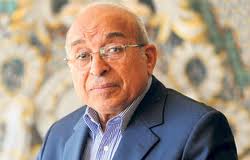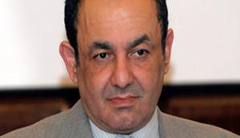As Egyptians still await the formal announcement of presidential results, many cling onto hopes that Ahmed Shafiq would emerge victorious in the presidential poll. Egyptian columnists, however, this week sought to understand the maladies of the past and the dominant institutions of the future, Islamists and the military junta. How would the two largest institutions emerging out of this arduous transitional process fair with a presidency on the line, Israel at the gates, and public clamoring for change, employment, and effective leadership.

Al-Watan Newspaper
Moataz Billah Abdel Fatah Al-Watan Newspaper Dissecting the power loci of two powerful institutions in the Egyptian political sphere, the Supreme Council of Armed Forces (SCAF) and the Muslim Brotherhood, Moataz Billah Abdel Fatah, analyses the dichotomies within each organisation and their leadership styles in relation to their powerbases in his article ‘Tantawi and his followers, Moris and his followers’. Recalling the long history of military’s agitation in regards to the population, Abdel Fatah sets out to understand how the SCAF views those outside of the military establishment. The SCAF, in Abdel Fatah’s estimation, regards its civilian population as poorly organised, divided and unequipped to lead. It is those assumptions that drive the leadership of the military to view Tahrir Square and its base of protestors as loosely-knit and unable to produce a figurehead that would lead to tangible demands. Lost on the SCAF, and its rules and hierarchies, are the intricacies of leaderless organisations that work for the collective of the population with the need to produce leaders. The SCAF is also pulled in opposite directions, as the population that scorns its abuse of power can sometimes call upon it to defend it against the rise of the theocratic state, the author notes. When it comes to analysing the Islamists, the SCAF sums up its political rival, as an ‘unpatriotic’ entity, Abdel Fatah writes. While this is not mean to indicate treacherous activity, or as the author states “betraying the country or behaving as agents”, it rather should be viewed as a political entity focused on self-interest and survival, even if it requires looking for support from outside the borders of Egypt. The writer equates ‘Islamists’ to ‘Nationalists,’ who believe Egypt should carry on its shoulders responsibilities that exceed her capacity. Understanding the brotherhood’s view of the military junta requires understanding the conflicts between the two institutions, and the brotherhood’s long fight for recognition within the state. The brotherhood, in Abdel Fatah’s estimation, views the military as nothing more than remnants of the ousted regime and engineers of a coup attempting to usurp the goals of revolution and use them as their own. Islamists view the armed forces, simply put as he notes, as power-hungry. The writer concludes his article by labeling Islamists as the group of ‘Morsi and his followers,’ where as military as ‘Tantawi and his followers’. He explains that the latter group meant to impose the new constitutional decree as a non-negotiable matter of fact. On the other side, ‘Morsi and hisfollowers’ reacted with disdain and unwillingness to compromise on the Constituent Assembly.

Al-Shorouk Newspaper
Fahmy Howeidy Al-Shorouk Newspaper The Muslim Brotherhood’s early announcement of the presidential results, a political move to ensure that the organisation’s fielded candidate, shored up publicsupport in case of a prolonged and dirty ballot count, reverberated through the Israeli media. Fahmy Howeidy’s column in Al-Shorouk newspaper entitled ‘Netanyahu did not sleep’, seeks to understand the ascension of Morsi to Egypt’s highest civilian post through the Israeli media’s eyes. The writer states the Israeli Prime Minister Benjamin Netanyahu, like almost all Egyptians, sweated bullets Sunday night watching the results come in from Egypt’s
presidential poll. Plastered on the front pages of print publications on Monday morning in Israel were the results of its neighbor’s first post-Mubarak election and its implications for the country and its alliance. At 7 pm, Israeli news announced that Israeli President Netanyahu phoned the U.S. President Barack Obama to voice support for Ahmed Shafiq. After the announcement of the unofficial results by Morsi’s campaign, the broadcasts rang out across Israel that described Morsi’s victory as a ‘shock’, especially since all indications shared between Washington and Tel Aviv had been in favor of ex-Mubarak prime minister Ahmed Shafiq victory. As an anchor of an Israeli media outlet expressed delight to see Egyptians contributing to democracy, the same anchor cautioned, ‘despite Israeli’s disappointment and bitterness of choosing Morsi as their new president.’ Israeli broadcasts, Howeidy noted, also suggested that SCAF’s role was to keep the two countries bound due to security concerns over the border. But lost in the account, the author wrote, was the inevitable monopolisation of power SCAF had accrued in order to keep Israeli national interests safe. Analysing Egypt’s future relations with Israel in the event of a Morsi victory, Howeidy notes that a strong message had been delivered. Israel, which was struck by disappointment to see Mubarak ousted, was buoyed by the confidence that Shafiq would normalise the tense relations between the two countries following the Egyptian uprising. The attacks following the elections on the border of Sinai reeked of foul play, Howeidy wrote. The attack signaled to the author that Israel was pressuring the new president through indirect conflict. Presuming Morsi is picked to be the new president, he must be assertive in the coming days to protect his country’s interests in this lop-sided power dynamic, Howeidy concludes.

Al-Masry Al-Youm
Amr Al-Shobaky Al-Masry Al-Youm Call it candidate regret, but perhaps the recent presidential run-off between two incredibly polarising figures representing what observers claimed to be a pitched battle between the former regime and the future theocratic revolution of Egypt, has led Amr Al-Shobaky to expresses his admiration for Amr Moussa with his recent column a ‘Tribute to Amr Moussa’. Despite not having voted for Moussa in the first round of the presidential elections, Al-Shobaky praised the measured reaction of Moussa following the announcement of his political loss. The author respected the way Moussa accepted his loss, and acted as a “true statesmen”. Al-Shobaky admits having considered Moussa at a certain times, namely in the 1990’s as the single most reasonable alternative to Hosni Mubarak and his presumed heir to the presidency, son Gamal Mubarak. Al-Shobaky praised Moussa’s patriotic stances in the regional and international arenas. People in ‘the street’ continue to laud Moussa’s statements against Israeli policies in the Middle East, the author writes, even if it was a public ploy for votes as critics note. Al-Shobaky, an Abdel-Moniem Abol Fotouh supporter, voiced regret for not committing to the idea of a Moussa presidency. However, endorsing more than one candidate would have caused confusion in the minds of his readers, already split along party, religious, and revolutionary lines. The Egyptian public was pinning for a ‘black and white’ run-off, Al-Shobaky notes, as opposed to the ‘shades of grey’ colour represented by Moussa and Abol-Fotouh. Although Moussa lost the elections, he did not lose himself as a respectable respectable politician, Al-Shobaky writes, and it is a principled man, rather than a man of party interests that will succeed in Egypt’s political future.

Al-Masry Al-Youm
Manar Al-Shurbagi Al-Masry Al-Youm It is the Constitutional Decree that requires examination, not the presidential poll numbers, writes Manar Al- Shurbagi in latest column on the military’s power grab and its ramifications for the Egyptian public. While preferring candidacy of Mohamed Morsi to that of ex-regime accomplice Ahmed Shafiq, Al-Shurbagi suggests SCAF has succeeded in preventing the establishment of both a religious or civil state, and has actually produced some mish-mashed military-run, civic hybrid. The writer calls it a “comforting state with military reference”. In attempt to explain her new political framework, Al-Shurbagi seeks to delineate differences between a military state, where it is the direct military rule, and a state with a ‘military reference.’ The latter being based upon the militarisation of politics, and is inspired by the military mentality in running the country’s affairs. Al-Shurbagi explains that a number of political factions saw the success of the revolution in eliminating other parties who participated in the revolution with a political perspective. She expresses her scepticism toward the Muslim Brotherhood who mobilised the people to vote for ‘Allah’s Shari’ah’; and toward the liberals who interpreted freedom as synonymous to freeing Egypt from Islamism. Al-Shurbagi condones both Islamists and liberals who have hidden behind the ‘military reference’ to turn the political situation to their favour. The brotherhood exerted itself in a mad rush to capture whatever powers it could grab. The group did not shy away from compromising its interests for political sway with the Supreme Council of Armed Forces, and forgot about blood spilled at Maspiro and at Moustafa Mahmoud Street, Al-Shurbagi notes. On the other hand, the so-called ‘civil currents’ created similar pitfalls for their movement after leaving the streets to the brotherhood, and seeking protection with ‘military reference’ rather than compromising. As such, Al-Shurbagi concludes, neither the Islamists nor the liberals have the right to accuse each other, or to accuse the judiciary system of being loyal to the concept of ‘military reference’, since, the events showed that all three groups are complicit in their own failures and the military’s successes.



